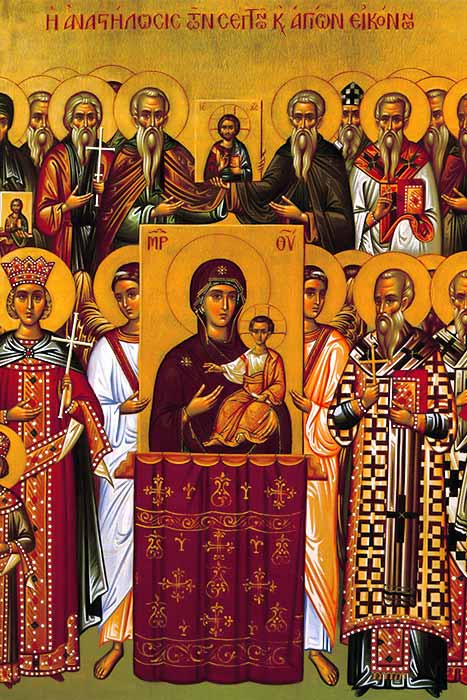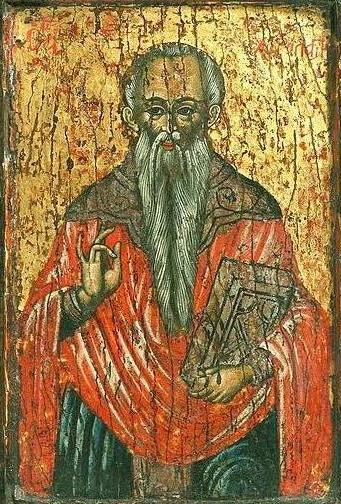The book of the genealogy of Jesus Christ, the son of David, the son of Abraham. Abraham was the father of Isaac, and Isaac the father of Jacob, and Jacob the father of Judah and his brothers, and Judah the father of Perez and Zerah by Tamar, and Perez the father of Hezron, and Hezron the father of Ram, and Ram the father of Amminadab, and Amminadab the father of Nahshon, and Nahshon the father of Salmon, and Salmon the father of Boaz by Rahab, and Boaz the father of Obed by Ruth, and Obed the father of Jesse, and Jesse the father of David the king. And David was the father of Solomon by the wife of Uriah, and Solomon the father of Rehoboam, and Rehoboam the father of Abijah, and Abijah the father of Asa, and Asa the father of Jehoshaphat, and Jehoshaphat the father of Joram, and Joram the father of Uzziah, and Uzziah the father of Jotham, and Jotham the father of Ahaz, and Ahaz the father of Hezekiah, and Hezekiah the father of Manasseh, and Manasseh the father of Amos, and Amos the father of Josiah, and Josiah the father of Jechoniah and his brothers, at the time of the deportation to Babylon. And after the deportation to Babylon: Jechoniah was the father of Shealtiel, and Shealtiel the father of Zerubbabel, and Zerubbabel the father of Abiud, and Abiud the father of Eliakim, and Eliakim the father of Azor, and Azor the father of Zadok, and Zadok the father of Achim, and Achim the father of Eliud, and Eliud the father of Eleazar, and Eleazar the father of Matthan, and Matthan the father of Jacob, and Jacob the father of Joseph the husband of Mary, of whom Jesus was born, who is called Christ. So all the generations from Abraham to David were fourteen generations, and from David to the deportation to Babylon fourteen generations, and from the deportation to Babylon to the Christ fourteen generations. Now the birth of Jesus Christ took place in this way. When His mother Mary had been betrothed to Joseph, before they came together she was found to be with child of the Holy Spirit; and her husband Joseph, being a just man and unwilling to put her to shame, resolved to divorce her quietly. But as he considered this, behold, an angel of the Lord appeared to him in a dream, saying, “Joseph, son of David, do not fear to take Mary your wife, for that which is conceived in her is of the Holy Spirit; she will bear a son, and you shall call His name Jesus, for He will save His people from their sins.” All this took place to fulfil what the Lord had spoken by the prophet: “Behold, a virgin shall conceive and bear a son, and His name shall be called Emmanuel” (which means, God with us). When Joseph woke from sleep, he did as the angel of the Lord commanded him; he took his wife, but knew her not until she had borne a son; and he called His name Jesus.
Matthew 1:1-25 (Gospel of the Sunday Before the Nativity)
On the Sunday before the Nativity, we read the 42 generation genealogy of Christ from the time of Abraham to Joseph, His “earthly” father. It was necessary that Christ came from the lineage of Abraham. This is because God made His first covenant with Abraham, in Genesis 15, that if Abraham worshipped Him as God, He would number Abraham’s descendants as the grains of sand on the seashore. Through this covenant, the Jewish faith was established. The Jews were recognized as God’s chosen people. And because of this, they could live in expectation that God would one day redeem His chosen people through the “Messiah” who would come to save the people and lead them back to God and to Paradise.
In my work as a priest, I talk to people about a concept I call “the playbook.” A football team (and it works with other sports as well) has a playbook, a certain book of plays that are unique to that team. Not every team runs exactly the same plays. Each playbook is unique to each team. When the team is playing a game, they can only run the plays in their unique book.
In our lives, we acquire a “playbook” based on our upbringing. Parents have a larger role than they imagine in determining the playbook their children will carry into adult life. If parents understood how much of childhood experiences their children will carry into adulthood, they might parent a little differently. For instance, if parents get divorced, their children are more likely to get a divorce, because somewhere in their “playbook” of life, there is something that says “If the going gets bad enough, I can leave.” Children of parents who are married don’t have that play, which means they are less likely to get a divorce. If a boy sees his father helping around the house, he is more than likely going to help out around the house when he is married. If a boy sees that his father never lifts a finger to help out around the house, he is likely to do the same. I could give dozens of other examples but you get the idea.
The line of the ancestors of Christ has in common that these were men of faith. No, they were not perfect by any means, but they were faithful. And so when Joseph descended from Jacob, who descended from Matthan, and going all the way back to Abraham, Joseph, like his ancestors, was also a man of faith. And so when an angel spoke to him and told him to stay with Mary, his betrothed (but not yet his wife) who was pregnant (but not by him), he did as the angel of the Lord commanded him. Why? Because faith was really prominent in his playbook.
It is critically important that faith be the most important play in our playbook. If you are a parent, you are the most determining factor in whether your child will have faith—your child’s faith will not be affected by a priest or a Sunday school teacher more than it is affected by you.
If you grew up in a home without faith, do not despair. While growing up with a strong faith at home gives you a head start on a playbook that is filled with faith, you can always add plays to your book. Sports teams are constantly adding things. So work to add faith to your playbook, so that you will have it to pass on to your kids.
If you are part-way through raising your kids and you don’t feel like you are imparting a lot of faith to them, do not despair. Tell your kids that you are going to try something new. We are always trying new things—new foods, new sports, new classes, new books. So, tell your kids with the coming New Year you are going to make faith and church a priority.
And if your faith is strong, then add more plays to it, and make it even stronger. Is your faith so strong that if angel came to you and asked you to do something really extraordinary, as the angel did with Joseph, that you could do it? I’m not so sure if I could. So, we should work constantly to grow and build upon our faith.
Christ is the most excellent example of faith—He put faith in God and in us, to the degree that He was willing to die for us, and to accept His role in God’s plan for salvation. We, too, are called to play a role in God’s plan for salvation. Whatever our role is, it begins with faith. Every miracle in the Bible involved faith. Every saint lived in faith. Every martyr died with faith. Faith is the common denominator that unites every Christian with the Lord. So, as we prepare to celebrate the Nativity, the church reminds us that our bond with God is made through faith, just like the miracle of the Nativity involved faith—God’s faith in us, and people like Mary and Joseph, and all the ancestors that came before them, embracing their roles in God’s plan for salvation and doing so with faith.
Forty-two generations is a long time to live in expectation. We think a few years is a long time. How about a few centuries? Speaking of playbooks and sports teams, there were probably a lot of people out there who never thought the Chicago Cubs would win the World Series. It took them over 100 years to win. Many lifelong fans did not live to see them win the Series. You might say they died with faith in their beloved team, confident the team might one day win. And in 2016, they finally did! And all the fans were so jubilant, many forgot just how long they had been struggling, because they were so happy with winning. Winning made the pain of losing quickly be forgotten. And now, people associate the Cubs as winners, no longer as the “lovable losers” that they were long referred to.
Well, the Cubs didn’t lose for forty-two generations, they lost for just over four. And their die-hard fans kept the faith through all of that. Well, our faith in Christ will be tested throughout our lives. Christ may or may not come back to earth in our lifetimes. We may at times feel like Cubs’ fans used to feel—will it ever end, will we ever reach the glory of God’s Kingdom? And this is where faith comes in. We can get there. And with faith, we will get there, in God’s time, in God’s way.
It all starts with making faith the most important play in your book.
The collection of the teachings of the Law makes Christ’s divine Nativity in the flesh apparent to those who preached the gospel of Grace before the Law was given and were above the Law by virtue of their faith. Therefore to the souls held in Hades, they announced the Nativity beforehand, that it would be the cause of the deliverance from corruption, through the resurrection. Glory to You, O Lord. (Doxastikon, Orthros, Sunday before Nativity, Trans. by Fr. Seraphim Dedes)
Plan to add some new plays of faith to your playbook this coming year! And if you are a parent, help your kids add some as well.

